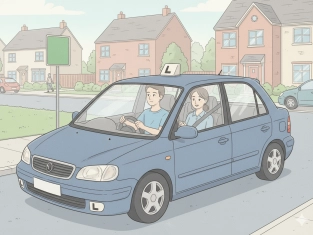Shouls vs Shouldn't
Table of Contents
Exercises
Explanation
Giving Advice or a Good Idea
Use should when you think something is a good idea or the right thing to do.
Examples:
You should eat more vegetables.
He should study harder for the test.
They should visit their grandparents more often.
We should take a break — we’ve been working all day.
Making Suggestions
Use should to suggest what someone can do.
Examples:
You should watch that new movie — it’s great!
We should go for a walk after lunch.
She should try the new restaurant in town.
What’s Right or Expected
Use should when something is normal, correct, or expected to happen.
Examples:
The bus should arrive at 8 o’clock.
People should be kind to each other.
You should always tell the truth.
Negative Form – Shouldn’t
Use shouldn’t (should not) to say that something is not a good idea or not right.
Examples:
You shouldn’t eat too much sugar.
He shouldn’t stay up so late.
We shouldn’t talk during the movie.
They shouldn’t drive so fast.
Should vs. Shouldn’t
|
Use |
Meaning |
Example |
|
Should |
Good idea or advice |
You should exercise more. |
|
Shouldn’t |
Bad idea or warning |
You shouldn’t skip breakfast. |
Form Summary
|
Type |
Structure |
Example |
|
Affirmative |
Subject + should + verb |
You should rest now. |
|
Negative |
Subject + shouldn’t + verb |
You shouldn’t be late. |
|
Question |
Should + subject + verb? |
Should I call her now? |
Tip
-
Should = good idea or advice → You should visit your parents this weekend.
-
Must = strong rule or obligation → You must wear a seat belt in the car.

